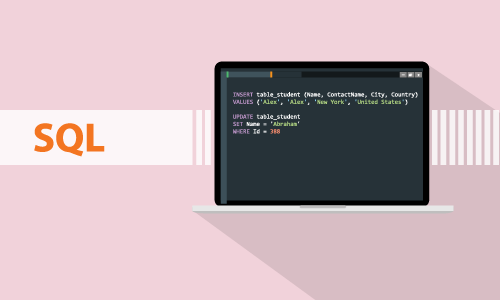Overview
A complete video course that will help you to become a Cyber Intelligence Officer that looks to protect networks, computers, programs and data from attack, damage or unauthorised access.
In this very detailed course you will learn everything from an overview of wireless communications through to phishing, threat landscapes, recon operations, evaluating a company’s security among many other cyber security techniques and protecting methods.
The Cyber Intelligence Officer training course covers; reconning, analyzing threats, understanding phishing, post-attack techniques, mitigation strategies, analysis and data, investigation, security system overviews and much more.
Highlights
- Improve your understand cyber security systems
- Identify potential threats to a companies cyber systems
- Perform network analysis
- Analyse data and log information
- Assessing post cyber attack techniques
- Understanding encryption
- Encryption Key Generation
- Implementing security monitoring
- Understanding security governance
Course design
The course is delivered through our online learning platform, accessible through any internet-connected device. There are no formal deadlines or teaching schedules, meaning you are free to study the course at your own pace.
You are taught through a combination of
- Video lessons
- Online study materials
- Mock exams
- Multiple-choice assessment
How is the course assessed?
To successfully complete the course you must pass an automated, multiple-choice assessment. The assessment is delivered through our online learning platform. You will receive the results of your assessment immediately upon completion.
Will I receive a certificate of completion?
Upon successful completion, you will qualify for the UK and internationally-recognised certificate and you can choose to make your achievement formal by obtaining your PDF Certificate at a cost of £9 and Hardcopy Certificate for £15.
Why study this course
Whether you’re an existing practitioner or aspiring professional, this course will enhance your expertise and boost your CV with key skills and an accredited qualification attesting to your knowledge.
The Cyber Intelligence Officer is open to all, with no formal entry requirements. All you need is a passion for learning, a good understanding of the English language, numeracy and IT, and to be over the age of 16.
Course Curriculum
| Overview of Wireless Communications | |||
| Identify the Importance of Risk Management | 00:11:00 | ||
| Assess Risk | 00:13:00 | ||
| Mitigate Risk | 00:24:00 | ||
| Integrate Documentation into Risk Management | 00:15:00 | ||
| Analyzing the Threat Landscape | |||
| Classify Threats and Threat Profiles | 00:08:00 | ||
| Perform Ongoing Threat Research | 00:13:00 | ||
| Resources that Aid in Research of Threats | 00:03:00 | ||
| Analyzing Recon Threats to Computing and Network Environments | |||
| Implement Threat Modeling | 00:10:00 | ||
| Assess the Impact of Reconnaissance Incidents | 00:11:00 | ||
| Performing Reconnaissance on a Network | 00:07:00 | ||
| Examining Reconnaissance Incidents | 00:08:00 | ||
| Assess the Impact of Social Engineering | 00:11:00 | ||
| Assessing the impact of Social Engineering | 00:07:00 | ||
| Assessing the Impact of Phishing | 00:03:00 | ||
| Analyzing Attacks on Computing and Network Environments | |||
| Assess the Impact of System Hacking Attacks | 00:10:00 | ||
| Cracking Passwords Using a Password File | 00:08:00 | ||
| Assess the Impact of Web Based Attacks | 00:11:00 | ||
| Assessing the Impact of Web-Based Threats | 00:03:00 | ||
| Assess the Impact of Malware | 00:08:00 | ||
| Malware Detection and Removal | 00:05:00 | ||
| Assess the Impact of Hijacking and Impersonation Attacks | 00:13:00 | ||
| Assess the Impact of DoS Incidents | 00:09:00 | ||
| Assessing the Impact of DoS Attacks | 00:04:00 | ||
| Assess the Impact of Threats to Mobile Security | 00:08:00 | ||
| Assess the Impact of Threats to Cloud Security | 00:10:00 | ||
| Analyzing Post-Attack Techniques | |||
| Assess Command and Control Techniques | 00:08:00 | ||
| Assessing Command and Control Techniques | 00:10:00 | ||
| Assess Persistence Techniques | 00:05:00 | ||
| Detecting Rootkits | 00:03:00 | ||
| Assess Lateral Movement and Pivoting Techniques | 00:13:00 | ||
| Assess Data Exfiltration Techniques | 00:04:00 | ||
| Steganography | 00:03:00 | ||
| Assess Anti Forensics Techniques | 00:09:00 | ||
| Assessing Anti-Forensics | 00:03:00 | ||
| Evaluating the Organization’s Security Posture | |||
| Conduct Vulnerability Assessments | 00:16:00 | ||
| Perform a Vulnerability Scan with Nessus | 00:07:00 | ||
| Perform a Vulnerability Scan with MBSA | 00:05:00 | ||
| Conduct Penetration Tests on Network Assets | 00:18:00 | ||
| Follow Up on Penetration Testing | 00:06:00 | ||
| Collecting Cyber security Intelligence | |||
| Deploy a Security Intelligence Collection and Analysis Platform | 00:19:00 | ||
| Collect Data from Network Based Intelligence Sources | 00:15:00 | ||
| Collecting Network-Based Security Intelligence | 00:07:00 | ||
| Collect Data from Host Based Intelligence Sources | 00:13:00 | ||
| Collecting Host-Based Security Intelligence | 00:15:00 | ||
| Parsing Log files | 00:03:00 | ||
| Analyzing Log Data | |||
| Use Common Tools to Analyze Logs | 00:22:00 | ||
| Analyzing Linux Logs for Security Intelligence | 00:08:00 | ||
| Use SIEM Tools for Analysis | 00:07:00 | ||
| Incorporating SIEMs into Security Intelligence Analysis | 00:18:00 | ||
| Parse Log Files with Regular Expressions | 00:25:00 | ||
| Performing Active Asset and Network Analysis | |||
| Analyze Incidents with Windows-Based Tools | 00:17:00 | ||
| Windows-Based Incident Analysis Tools | 00:19:00 | ||
| Analyze Incidents with Linux Based Tools | 00:05:00 | ||
| Linux-Based Incident Analysis Tools | 00:07:00 | ||
| Analyze Malware | 00:11:00 | ||
| Analyzing Malware | 00:03:00 | ||
| Analyze Indicators of Compromise | 00:20:00 | ||
| Analyzing Indicators of Compromise | 00:15:00 | ||
| Responding to Cyber security Incidents | |||
| Deploy an Incident Handling and Response Architecture | 00:22:00 | ||
| Mitigate Incidents | 00:16:00 | ||
| Hardening Windows Servers | 00:14:00 | ||
| DNS Filtering | 00:05:00 | ||
| Blacklisting and Whitelisting | 00:09:00 | ||
| Prepare for Forensic Investigation as a CSIRT | 00:03:00 | ||
| Investigating Cyber security Incidents | |||
| Apply a Forensic Investigation Plan | 00:10:00 | ||
| Securely Collect and Analyze Electronic Evidence | 00:08:00 | ||
| Securely Collecting Electronic Evidence | 00:05:00 | ||
| Analyzing Forensic Evidence | 00:07:00 | ||
| Follow Up on the Results of an Investigation | 00:04:00 | ||
| WLAN Security Overview | |||
| WLAN Security Overview and Data Privacy | 00:58:00 | ||
| Networking Basics | 00:04:00 | ||
| Web GUI Introduction | 00:05:00 | ||
| Security Options | 00:03:00 | ||
| Legacy Security | |||
| Legacy Security | 00:32:00 | ||
| VPNs | 00:21:00 | ||
| Security Association | 00:09:00 | ||
| MAC Spoofing | 00:07:00 | ||
| Encryption Ciphers and Methods | |||
| Encryption Ciphers and Methods | 00:19:00 | ||
| TKIP | 00:26:00 | ||
| CCMP | 00:20:00 | ||
| Encryption Examples | 00:06:00 | ||
| 802.11 Authentication Methods | |||
| 802.11 Authentication Methods | 00:26:00 | ||
| 802.1X | 00:20:00 | ||
| EAP | 00:25:00 | ||
| Certified Authority Server Credentials | 00:06:00 | ||
| Dynamic Encryption Key Generation | |||
| Dynamic Encryption Key Generation | 00:21:00 | ||
| Authentication and Key Management | 00:13:00 | ||
| RSNA Key Hierarchy | 00:12:00 | ||
| EAP | 00:05:00 | ||
| Information Elements | 00:06:00 | ||
| SOHO 802.11 Security | |||
| SOHO 802.11 Security | 00:26:00 | ||
| Wi-Fi Protected Setup (WPS) | 00:20:00 | ||
| Cracking Hashes | 00:09:00 | ||
| Fast Secure Roaming | |||
| Fast Secure Roaming | 00:24:00 | ||
| PMKSA | 00:29:00 | ||
| FT Key Hierarchy (e-notes) | 00:30:00 | ||
| 802.11K-2008 | 00:28:00 | ||
| Wireless Security Risks | |||
| Wireless Security Risks | 00:22:00 | ||
| Authentication Attacks | 00:21:00 | ||
| Rogue Devices | 00:04:00 | ||
| Public Hotspots | 00:07:00 | ||
| Wireless LAN Security Auditing | |||
| Wireless LAN Security Auditing | 00:28:00 | ||
| Wireless Security Monitoring | |||
| Wireless Security Monitoring | 00:21:00 | ||
| Device Tracking | 00:18:00 | ||
| VPNs, Remote Access and Guest Access Services | |||
| VPNs, Remote Access and Guest Access Services | 00:23:00 | ||
| Remote Access | 00:14:00 | ||
| WLAN Security Infrastructure | |||
| WLAN Security Infrastructure | 00:38:00 | ||
| Management Protocols | 00:23:00 | ||
| Other RADIUS Solutions | 00:16:00 | ||
| Wireless Security Policies | |||
| Wireless Security Policies | 00:17:00 | ||
| Other Policies | 00:14:00 | ||
| Information Security Governance | |||
| Information Security Governance Overview | 00:25:00 | ||
| Effective Information Security Governance | 00:24:00 | ||
| Information Security Concepts and Technologies | 00:20:00 | ||
| Information Security Manager | 00:09:00 | ||
| Scope and Charter of Information Security Governance | 00:10:00 | ||
| Information Security Governance Metrics | 00:23:00 | ||
| Information Security Strategy Overview | 00:02:00 | ||
| Creating Information Security Strategy | 00:36:00 | ||
| Determining Current State Of Security | 00:06:00 | ||
| Information Security Strategy Development | 00:10:00 | ||
| Strategy Resources | 00:40:00 | ||
| Strategy Constraints | 00:07:00 | ||
| Action Plan to Implement Strategy | 00:20:00 | ||
| Information Risk Management | |||
| Risk Management Overview | 00:16:00 | ||
| Good Information Security Risk Management | 00:15:00 | ||
| Information Security Risk Management Concepts | 00:13:00 | ||
| Implementing Risk Management | 00:17:00 | ||
| Risk Assessment | 00:39:00 | ||
| Controls Countermeasures | 00:23:00 | ||
| Recovery Time Objectives | 00:18:00 | ||
| Risk Monitoring and Communication | 00:04:00 | ||
| Information Security Program Development | |||
| Development of Information Security Program | 00:11:00 | ||
| Information Security Program Objectives | 00:09:00 | ||
| Information Security Program Development Concepts | 00:14:00 | ||
| Scope and Charter of Information Security Program Development | 00:22:00 | ||
| Information Security Management Framework | 00:16:00 | ||
| Information Security Framework Components | 00:12:00 | ||
| Information Security Program Resources | 01:04:00 | ||
| Implementing an Information Security Program | 00:27:00 | ||
| Information Infrastructure and Architecture | 00:14:00 | ||
| Information Security Program | 00:14:00 | ||
| Security Program Services and Operational Activities | 00:45:00 | ||
| Information Security Incident Management | |||
| Incident Management Overview | 00:28:00 | ||
| Incident Response Procedures | 00:29:00 | ||
| Incident Management Organization | 00:19:00 | ||
| Incident Management Resources | 00:36:00 | ||
| Incident Management Objectives | 00:14:00 | ||
| Incident Management Metrics and Indicators | 00:17:00 | ||
| Current State of Incident Response Capability | 00:11:00 | ||
| BCP DRP | 00:36:00 | ||
| Testing Response and Recovery Plans | 00:10:00 | ||
| Executing the Plan | 00:27:00 | ||
| Healthcare Information Systems Security | |||
| The Healthcare Industry | 01:25:00 | ||
| The Healthcare Regulatory Environment | 01:51:00 | ||
| Privacy and Security in Healthcare | 01:31:00 | ||
| Information Governance and Risk Management | 01:18:00 | ||
| Information Risk Assessment | 00:52:00 | ||
| Third-Party Risk Management | 01:18:00 | ||
| Disaster Recovery | |||
| Welcome to Disaster Recovery Training | 00:26:00 | ||
| Business Impact Analysis | 00:24:00 | ||
| Risk Analysis | 00:12:00 | ||
| BCP Strategies | 00:27:00 | ||
| IT Recovery Strategies | 00:27:00 | ||
| Implementation Phase | 00:09:00 | ||
| Testing and Exercise | 00:07:00 | ||
| Maintenance and Updating | 00:06:00 | ||
| Execution Phase | 00:07:00 | ||
| Digital Forensics Examination | |||
| Introduction | 00:13:00 | ||
| Computer Forensic Incidents | 00:28:00 | ||
| Investigation Process | 00:54:00 | ||
| Disk Storage Concepts | 00:30:00 | ||
| Digital Acquisition & Analysis | 00:24:00 | ||
| Forensic Examination Protocols | 00:25:00 | ||
| Digital Evidence Protocols | 00:21:00 | ||
| CFI Theory | 00:25:00 | ||
| Digital Evidence Presentation | 00:22:00 | ||
| Computer Forensic Laboratory Protocols | 00:33:00 | ||
| Computer Forensic Processing | 00:22:00 | ||
| Digital Forensics Reporting | 00:20:00 | ||
| Specialized Artifact Recovery | 00:46:00 | ||
| Discovery and ESI | 00:12:00 | ||
| Cell Phone Forensics | 00:21:00 | ||
| USB Forensics | 00:06:00 | ||
| Incident Handling | 00:36:00 | ||
| PDA Forensics | 00:23:00 | ||
| Investigating Harassment | 00:14:00 | ||
| Incident Handling Engineer | |||
| Introduction | 00:09:00 | ||
| Threats, Vulnerabilities and Exploits | 00:48:00 | ||
| IH Preparation | 00:45:00 | ||
| Request Tracker for Incident Handling | 00:12:00 | ||
| Preliminary Response | 00:30:00 | ||
| Identification and Initial Response | 00:12:00 | ||
| Sysinternals | 00:13:00 | ||
| Containment | 00:16:00 | ||
| Eradication | 00:29:00 | ||
| Follow-up | 00:12:00 | ||
| Recovery | 00:16:00 | ||
| Virtualization Security | 00:13:00 | ||
| Malware Incident Handling | 01:14:00 | ||
| Security Leadership Officer | |||
| Security Management | 00:58:00 | ||
| Risk Management | 00:35:00 | ||
| Encryption | 00:31:00 | ||
| Information Security – Access Control Concepts | 00:31:00 | ||
| Incident Handling and Evidence | 01:01:00 | ||
| Operations Security | 00:48:00 | ||
| Knowing Network Security | 01:12:00 | ||
| Security Sentinel | |||
| Basic Security | 00:17:00 | ||
| User Awareness | 00:27:00 | ||
| Implementing Countermeasures | 00:09:00 | ||
| Certified Security Sentinel | 00:16:00 | ||
| Using the Internet at Work | 00:23:00 | ||
| Accessing the Company’s Network Through Your Assigned Computer | 00:19:00 | ||
| Accessing the Corporate Network Remotely | 00:09:00 | ||
| Social Engineering | 00:13:00 | ||
| Understanding and Manipulating our Target | 00:16:00 | ||
| Researching Our Target | 00:11:00 | ||
| Mock Exam | |||
| Mock Exam- Cyber Intelligence Officer | 00:20:00 | ||
| Final Exam | |||
| Final Exam- Cyber Intelligence Officer | 00:20:00 | ||

Upgrade to get UNLIMITED ACCESS to ALL COURSES for only £49/year
Claim Offer & UpgradeMembership renews after 12 months. You can cancel anytime from your account.





 1 Year Access
1 Year Access 
 98 Students
98 Students  2 days, 23 hours
2 days, 23 hours 








